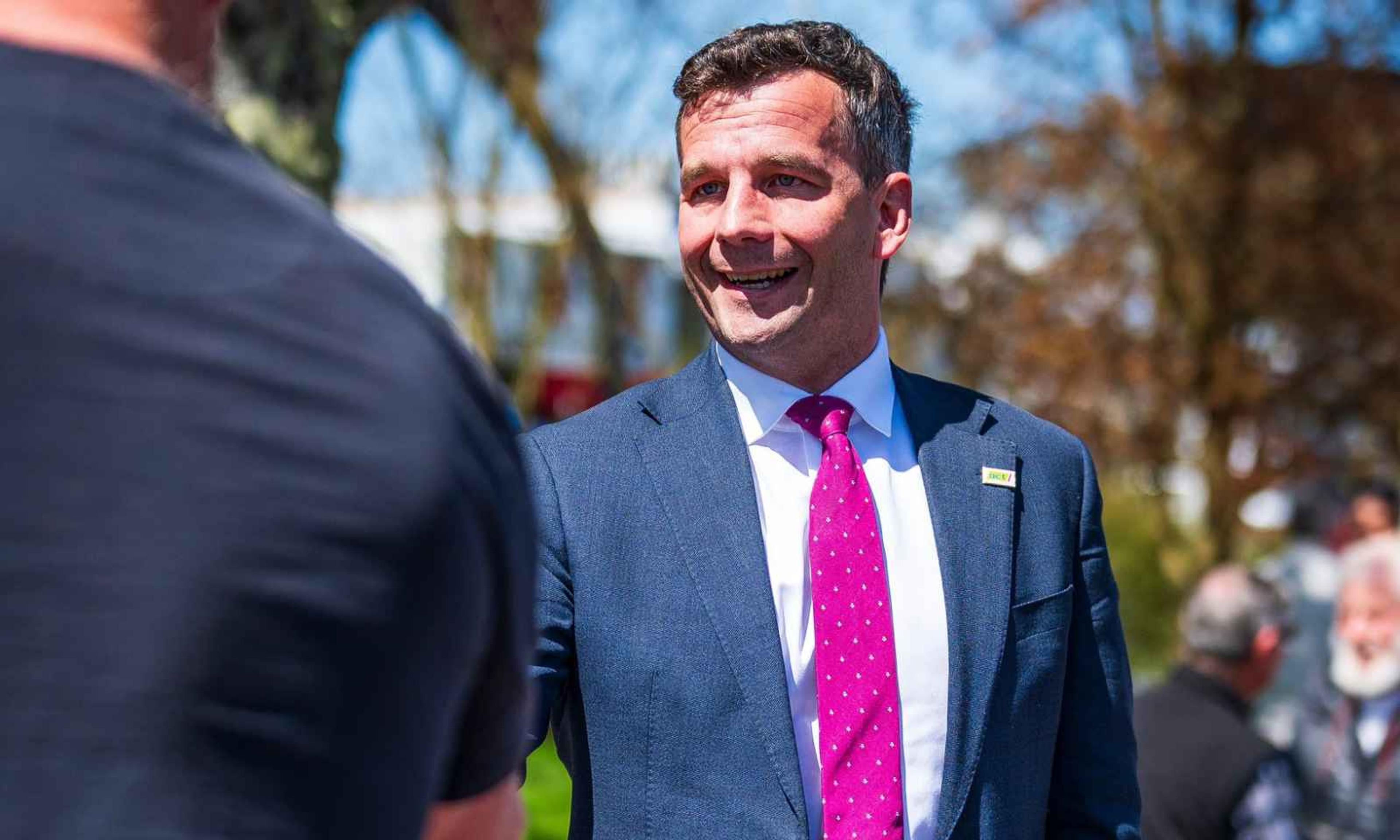
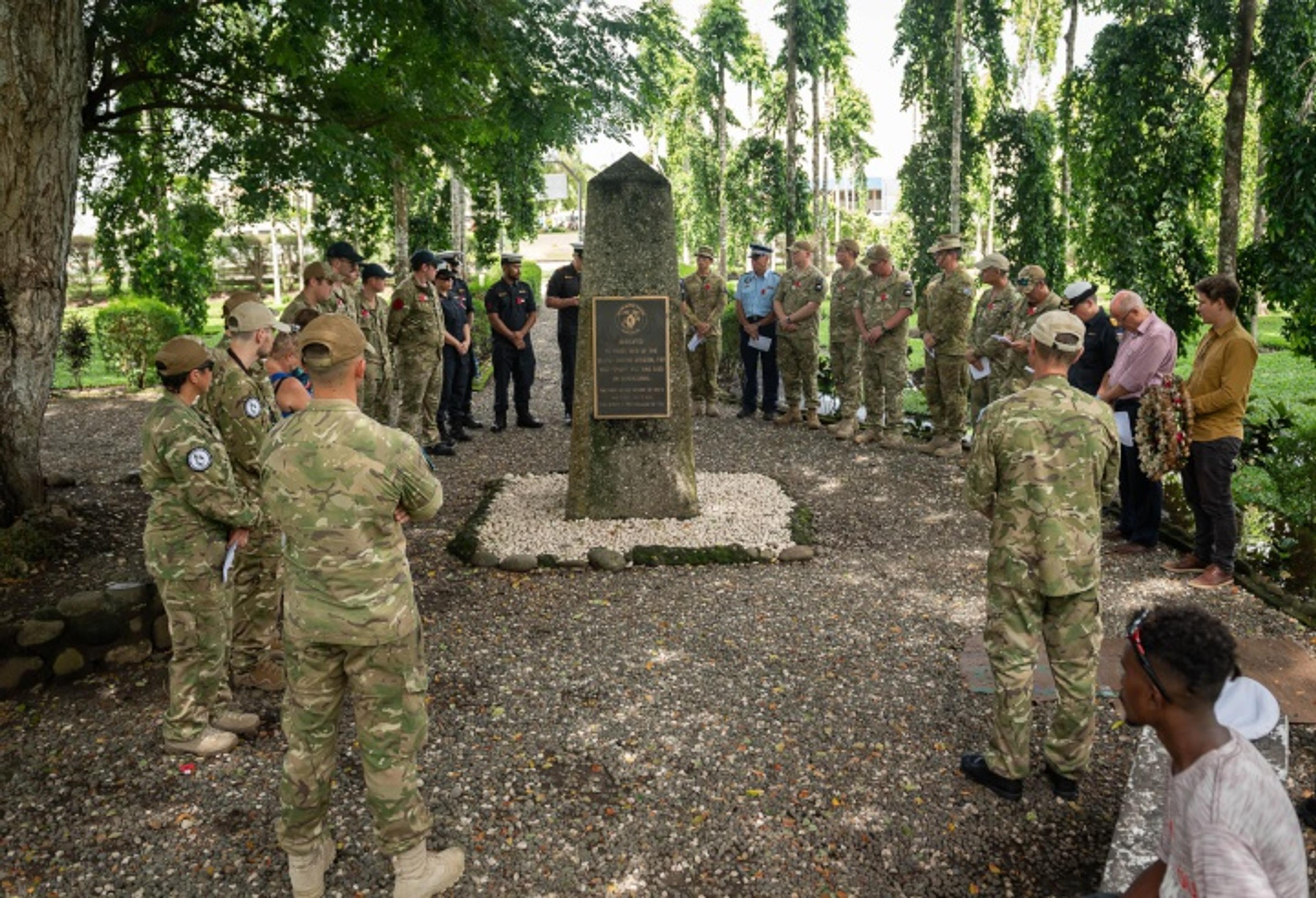
New Zealand Defence Force commemorates the sinking of the HMNZS Moa in Honiara on Tuesday 9 April 2024.
NZDF
Voter education key, media expert says
The Solomon Islands is set to hold its first joint elections and every effort must be made to help prepare voters for the 17 April vote, a media executive says.

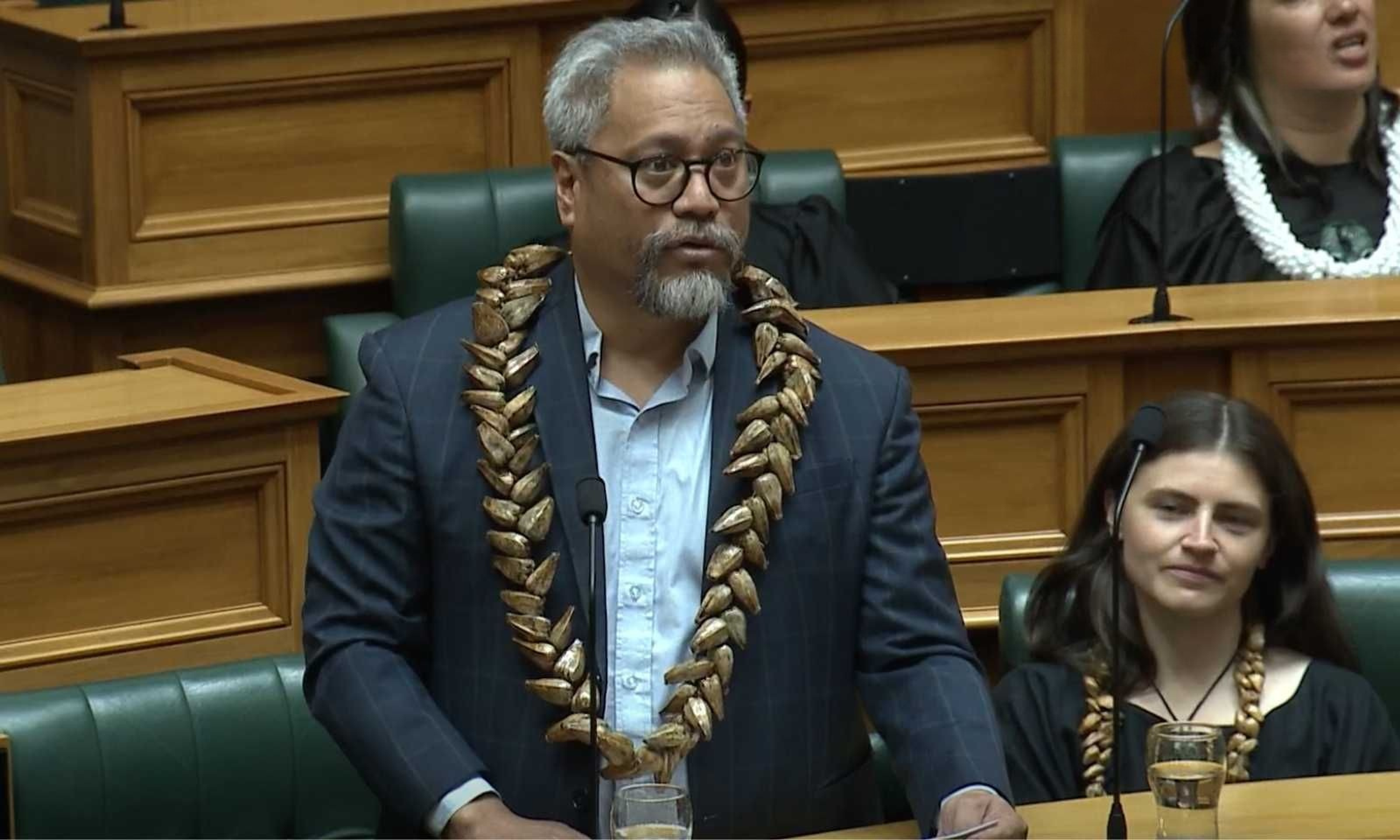
Green MP says the proposed immigration changes risks reigniting Dawn Raids trauma

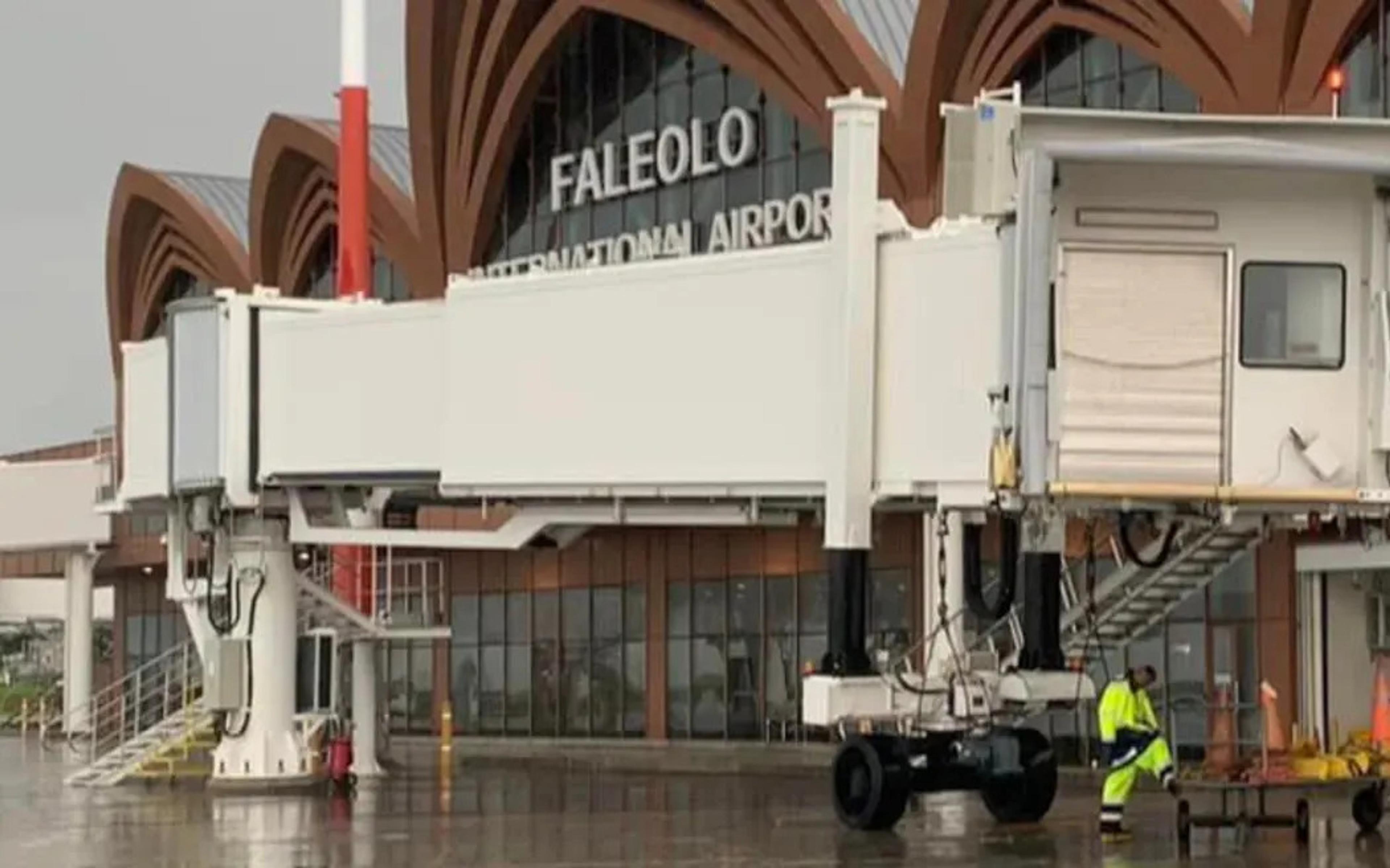
'I don't want to travel anymore': Sāmoa government urged to reconsider fee hike

Pacific child poverty rises as Deputy PM points to economic growth as solution

Green MP says the proposed immigration changes risks reigniting Dawn Raids trauma


'I don't want to travel anymore': Sāmoa government urged to reconsider fee hike
With a week to go before Solomon Islanders take to the polls, electoral officials say public awareness is important to ensuring the joint vote is fair and transparent throughout the country.
Campaigns are in full swing with 334 candidates vying for 50 seats but only 21 of the contenders are women.
Johnson Honimae, of the Solomon Islands Broadcasting Commission, says there is a lot of speculation about who will win but less about why these elections matter for democracy.
Watch Johnson Honimae's interview below.
Prime Minister Manasseh Sogavare is vying for a second term in office.
Honimae said voters would determine not only political leadership but the future of democratic processes in the Solomons.
“This is the first time in the 45 years of independence that we are having the synchronisation of elections - joint election - which means polling for the 50 national constituencies and the provincial government wards.”
Previously, the provincial assemblies held their elections separately from the vote for the national parliamentary seats, he said.
But the Western Province and Choiseul Province, southwest of the capital Honiara, have held their provincial government elections “so they will only be voting for the national parliamentary seats come 17 April”.
Home to about 730,000, according to the government’s official estimates for mid-2023, the Solomon Islands is located just over 3700km from New Zealand.
Its capital, Honiara, is on the largest island, Guadalcanal. The country takes its name from the wider area of the Solomons archipelago, which is a collection of Melanesian islands that also includes the Autonomous Region of Bougainville (a part of Papua New Guinea), excluding the Santa Cruz Islands.
Honimae said the Solomons are geographically dispersed and this can be logistically challenging to ensure everyone has a chance to vote.
He said the Electoral Commission is conducting ballot paper draws across the country for the joint elections.
The first votes were cast in Honiara last Friday in pre-polling for police officers and electoral officials who will be working on election day - 19 pre-polling locations have been organised throughout the 10 provinces.
“This is new - the joint elections - so there’s been a lot of education by the electoral commission and the media over the last couple of months to ensure that people who are eligible to vote are registered and understand how the process will take place.”
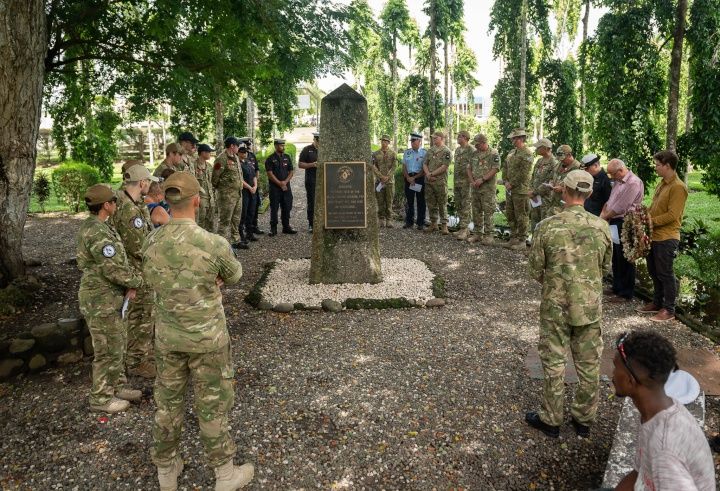
New Zealand Defence Force commemorates the sinking of the HMNZS Moa in the Solomon Islands. Photo/NZDF
“For us at the national broadcaster, we have been sending out twice weekly programmes by the electoral commission including talkback shows on air every Sunday informing people and opening up the lines for voters to call in and share their concerns and queries.
“It has been logistically challenging getting the information out to remote communities so radio broadcasts have been a way to address the issue.
“A lot of the information also goes out on social media about registration, how to be prepared, where to go, and then our role on polling day - reporting how people are accessing, getting to polling stations. We are deploying our staff to the provincial capitals to cover voting there.”
The Solomons’ key partners in the region and abroad continue to support them including Aotearoa and Australia.
New Zealand has a close relationship with the Solomons, most recently assisting with the Pacific Games as well as Aotearoa’s assistance mission.
Last week, the NZ Defence Force sent a 200-strong Joint Task Force to Honiara to help with the elections. HMNZS Canterbury and two helicopters were deployed.
Foreign Affairs Minister Winston Peters and Defence Minister Judith Collins said the assistance followed a request from the Solomon Islands Electoral Commission.
Peters said it is part of a $10.8 million election support programme announced by the Government in January.
He said the assistance included preparation, management, and technical support from the NZ Electoral Commission, and an independent observer mission.
“This is an excellent opportunity for our personnel to work again with the Solomons government and alongside Australian counterparts in support of regional peace and security.
“New Zealand’s overall contribution will support the commission to lead the delivery of a safe and successful election. It demonstrates New Zealand’s commitment to a resilient democracy in the Solomon Islands and the wider Pacific region.”
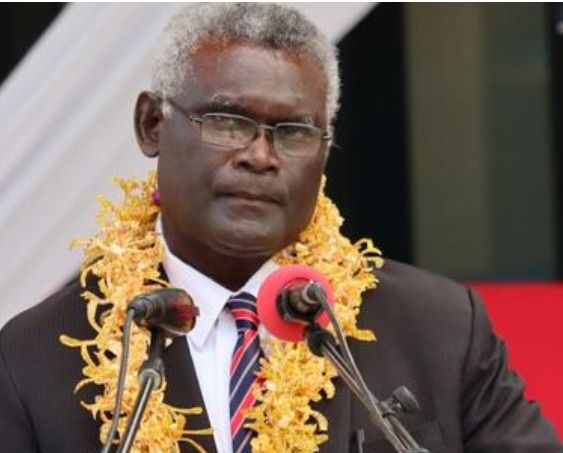
Solomon Islands Prime Minister Manasseh Sogavare says New Zealand and Australian defence and security personnel will remain in the Pacific island nation until the end of the joint elections. Photo/SI Govt Communications Unit
The NZ contingent gathered at Tulagi Harbour in Honiara to commemorate WW2’s sinking of the HMNZS Moa on 7 April 1943 by the Japanese, which left five people dead and several injured.
The United Nations Development Programme (UNDP) has held a series of pre-election trainings for 17 provincial and Civil Society Organisations (CSOs) as part of its Strengthening the Electoral Cycle in Solomon Islands Project (SECSIP).
The UNDP is being supported by the European Union and Australia to integrate the hands-on experience of civil society with electoral experts in these awareness outreach campaigns.
A UN official told PMN News the aim is to “effectively communicate and promote fair and transparent elections throughout the country.
“The initiative also underlines the importance of informed participation in the electoral process, empowering individuals to become more actively engaged in the democratic process.”
China is also assisting the Solomons amid concerns raised by the United States and its allies Australia and New Zealand about the growing Chinese influence in Honiara.
Sogavare, who ended the Solomons’ 36-year relations with Taiwan for China shortly after winning the 2019 election, launched his contentious bid for re-election in December.
He has also accused Washington and its “Western agents” of trying to “pull down” his government. The Americans have been critical of Sogavare since he signed a security pact with Beijing in early 2022.
He told Parliament the Solomons were at the centre of a “geopolitical war” between fast-rising China and Western powers that he painted as “arrogant has-beens”.
Australian police, who provided security at last year's Pacific Games, will remain in Honiara until June, Sogavare said.
An elections observer team from Australia has also arrived in the Solomons.